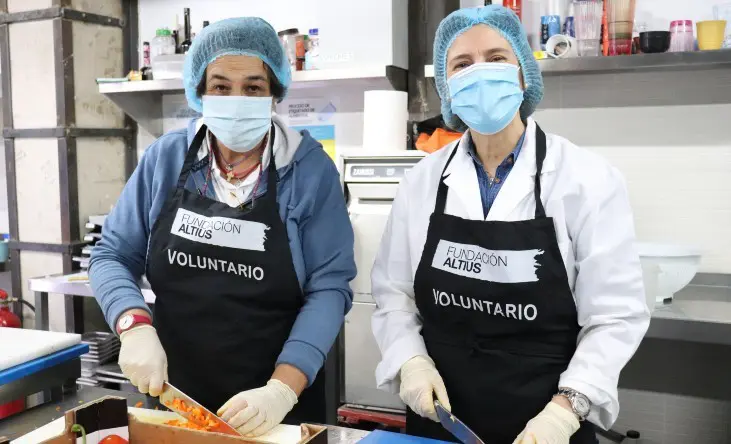SUSTAINABILITY| 12.04.2021
If food loss and waste were a country, it would be the third biggest source of greenhouse gas emissions
Each year, we produce more than 930 million tons of food that end up in the trash. We need to take action to curb food waste, especially given its serious environmental impact: between 8 and 10 percent of global greenhouse gas emissions come from food that is not consumed. At the same time, the pandemic presents a threat to many families around the world. Can we afford to throw away tons of food when there are families going hungry?
In its first Food Waste Index Report, the UN estimates that we throw away 931 million tons of food each year, almost 570 million tons of which come from households. Food waste is closely linked to the climate crisis, but it also causes food insecurity and is a major burden on waste management systems. To address this problem, Sustainable Development Goal 12.3 sets the target of cutting food waste in half by 2030.
We know that of the 931 million tons of food that end up in the trash every year:
- 61 percent comes from households,
- 26 percent comes from the food industry
- and 13 percent comes from retail.
In this regard, the report reveals a surprising fact: the global average of 74 kg per capita of food wasted each year is similar in low-, middle- and high-income countries, for various reasons. In other words, most countries have significant room for improvement.
Much more can be done. For example, we need to address the role of consumers. Let’s eat consciously, cook creatively and make wasting food socially unacceptable while continuing to strive to provide healthy, sustainable diets for all.
The food paradox: hungry families and wasted food
Some food products are discarded for economic or esthetic reasons or because they’re nearing their expiration date, despite being perfectly edible. Let’s look for an alternative use so that this food doesn’t end up in the trash.
In addition, the pandemic continues to wreak havoc on economies around the world. In Spain alone, requests for help from vulnerable families have increased by 60 percent, according to Caritas data. According to Oxfam Intermón, COVID-19 threatens to plunge as many as 700,000 people into poverty in Spain.
Fundación Altius aims to put an end to this paradox of hunger and food waste, at least in Spain. With its 1 Kilo of Help program, it proposes redistributing food to families in need, which also contributes to reducing waste and pollution.
This project is possible thanks to a broad network of solidarity, including volunteers from MAPFRE, donor companies, logistics firms, volunteers and management teams at the social organization in which the aid is distributed to families referred by Social Services. Thanks to this program, food recovery accounted for almost 80 percent of the food delivered to families in 2020.

Playing our part
The transition to a circular economy is one of the world’s major challenges, and would respond to many of the problems associated with the climate crisis, including food waste.
At MAPFRE, we have created a specific line and work group focusing on circular economies, developed in the Sustainability Plan 2019–2021, to address this topic from both an internal and a business perspective.
Related topics:
https://www.mapfre.com/en/insights/economy/toward-a-circular-economy/
https://www.mapfre.com/en/insights/sustainability/sustainable-food-focus-point-spains-greenweekend/
